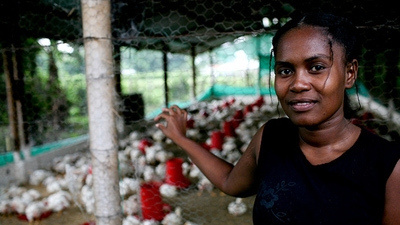Imagine how much global food production would increase and how many fewer people would go hungry if female farmers had better access to opportunities, new technologies, and crop varieties?
Rachel Kyte, vice president for sustainable development at the World Bank and chair of the CGIAR Fund Council, put that question to participants in a workshop on gender in development, convened by the CGIAR Research Program on Aquatic Agricultural Systems Oct. 3-5 in Penang, Malaysia.
The goal of the workshop, "Building Coalitions, Creating Change: An Agenda for Gender Transformative Research in Agricultural Development," is to develop an agenda for gender transformative research related to agriculture and build a community of experts and advocates to put the agenda into action to accelerate progress in the fight against poverty and hunger.



